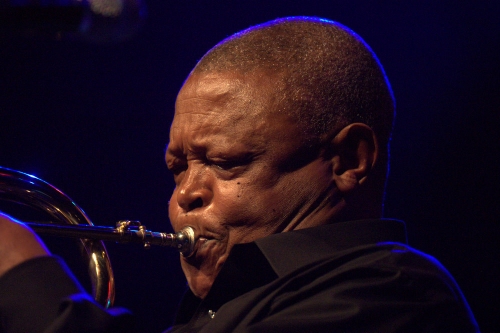.
Hugh Masekela
- Competition: The best male singer
- Photo author: Autor: Tom Beetz – https://www.flickr.com/photos/9967007@N07/6580953101/in/photostream/, CC BY 2.0, https://commons.wikimedia.org/w/index.php?curid=19268677
Cache full!
Cookies and browser page data must be cleared.
More information in the menu.





































Comments
Masekela began his musical journey at a young age, learning to play the trumpet as a child. He honed his skills and developed a unique sound influenced by his South African heritage. In the 1950s, he joined the Jazz Epistles, South Africa's first African jazz band, and quickly gained recognition for his exceptional talent.
Due to the apartheid regime in South Africa, Masekela was forced into exile in the 1960s. He spent many years living and performing internationally, using his music to raise awareness about the struggles faced by South Africans under apartheid. His songs often carried messages of freedom, resistance, and the celebration of African culture.
Throughout his career, Masekela released numerous albums, including the critically acclaimed "Graceland" (1987) produced by Paul Simon. He achieved international success with hits such as "Grazing in the Grass" and "Bring Him Back Home," which became anthems of the anti-apartheid movement.
Masekela's music was characterized by his distinctive trumpet playing, soulful vocals, and his ability to infuse his compositions with infectious energy. He was not only a talented musician but also a skilled storyteller, using his lyrics to convey the social and political realities of his homeland.
Hugh Masekela's contributions to music and his unwavering activism made him a revered figure in both the South African and global music communities. His influence extended far beyond his musical achievements, as he used his platform to advocate for justice and equality. Masekela passed away on January 23, 2018, leaving behind a lasting legacy as one of Africa's most influential musicians and cultural icons.